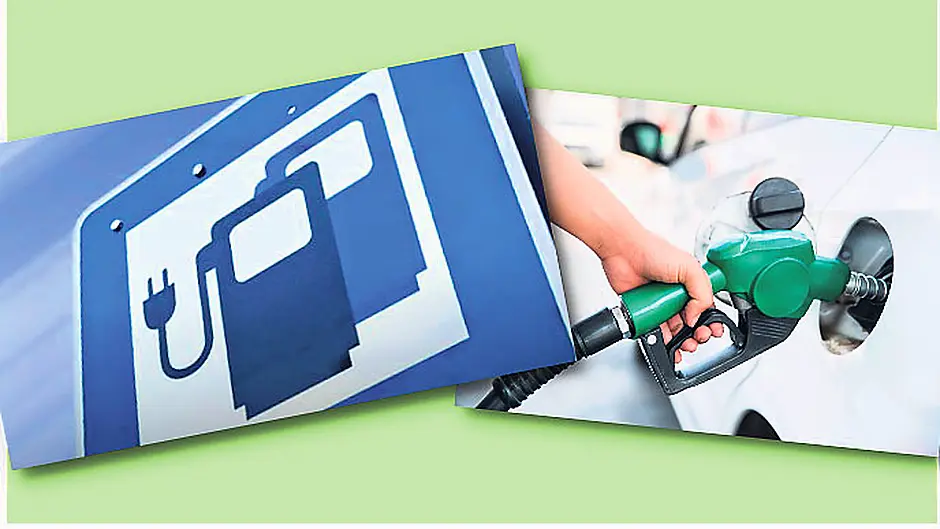THE substantial increase in electric energy costs over the past few months has changed the economy dynamic between electric and internal combustion engine power, writes Brian Byrne.
That’s especially if you depend on public charging facilities for your electric car.
At the time of writing, internal combustion engines — for which fuel costs have been coming down since the scary heights reached at the start of the Ukraine invasion — can have an economy edge over similar electric models.
Since electric vehicles have become a realistic part of the cars mix, the emphasis has been on range rather than consumption. But that’s not the correct way to think about it. It’s really — as it always has been with ICE engines regardless of their fuels — about consumption.
With ESB stations now charging 68c per kWh, following two major increases in the last year, travelling 100km in a Peugeot e-208 will cost €10.20 if you depend on public chargers. The same journey in an equivalent Toyota Yaris Hybrid will cost €6.40.
However, the charge cost of the EV at home at standard rates is closer to the hybrid car, at €6.75 for the same distance, and if you use a night rate only for charging, you can bring that down to €3.51. However, that means you have to go on a smart meter rate, which can mean extra costs for your home electricity usage during day and peak hours.
Another element to consider: the current cost of a litre of petrol at around €1.60 is an artificially low level, since the government temporarily cut excise duty by 20c at the beginning of the fuel cost crisis. So the real price for petrol, in my view, is around €1.80 at the moment. That means your 100km in the Yaris hybrid would be actually a little more expensive, at €7.20, if or when that excise duty is restored.
Take the extra cost of buying the EV and the charger into account, and the current operating cost of the electric car makes it rather harder to recoup the difference over a typical ownership period.
Sorry if I seem to be bursting a bubble. But the upside is the EV is still producing less emissions in use. Which should make you feel you’re doing something worthwhile by driving one. And at the present energy-fuel prices, you can save €434 a year on car operating costs by charging at night rates. There are no such savings if you charge at standard daytime home rates. Anyway, the motor industry is fully committed to going electric by the middle of the century, so the argument will eventually become moot.
The figures on which this is based are a consumption of 15kWh/100km for the EV and 4L/100km for the hybrid car.








